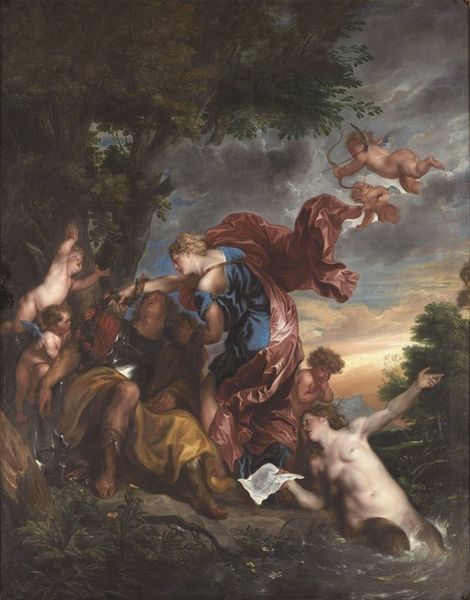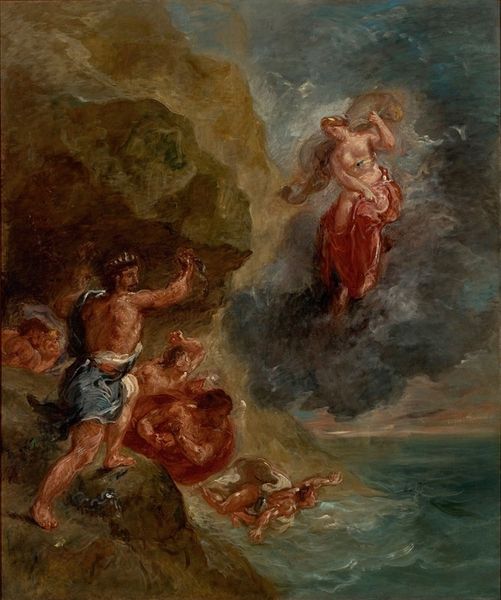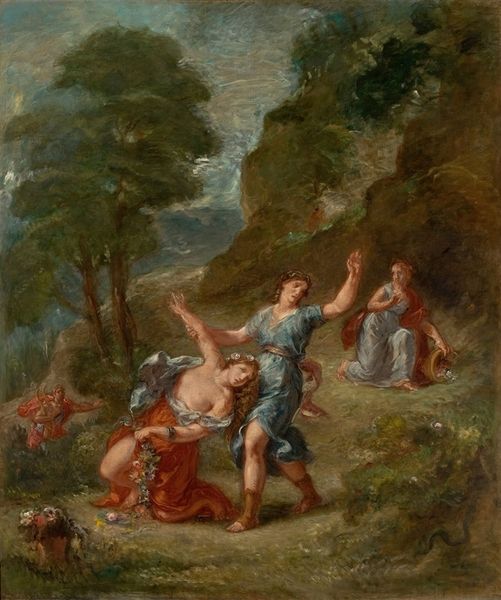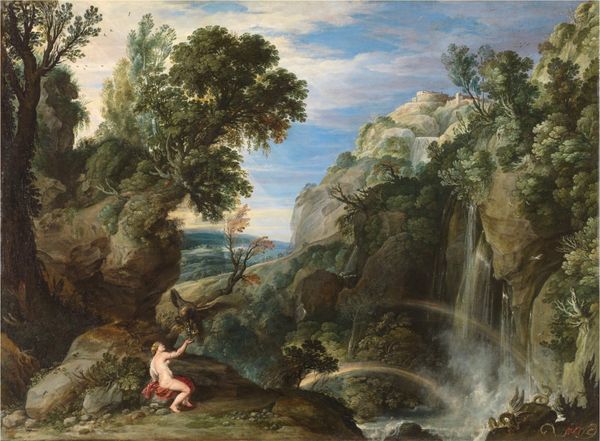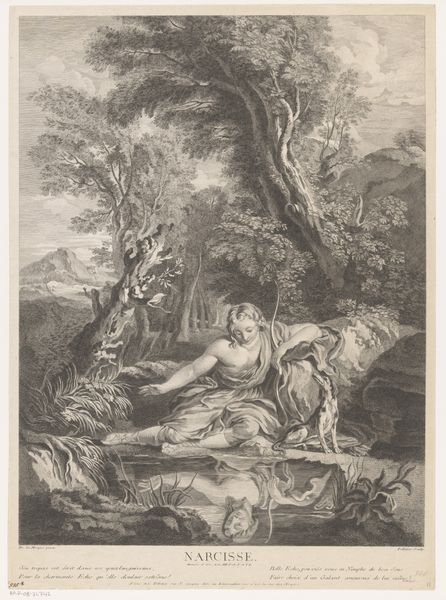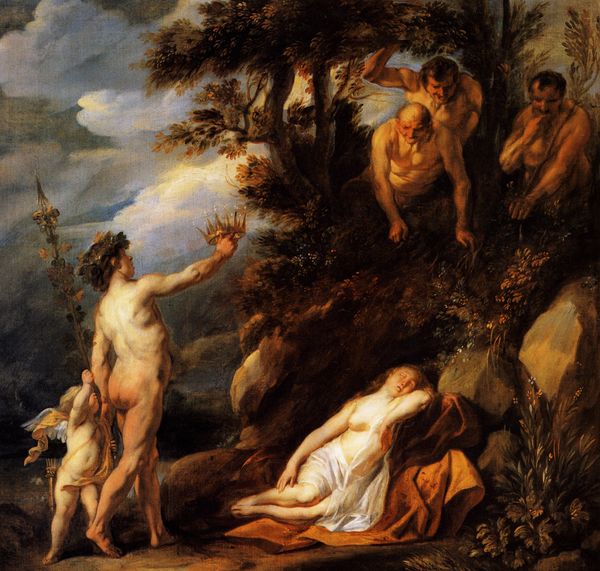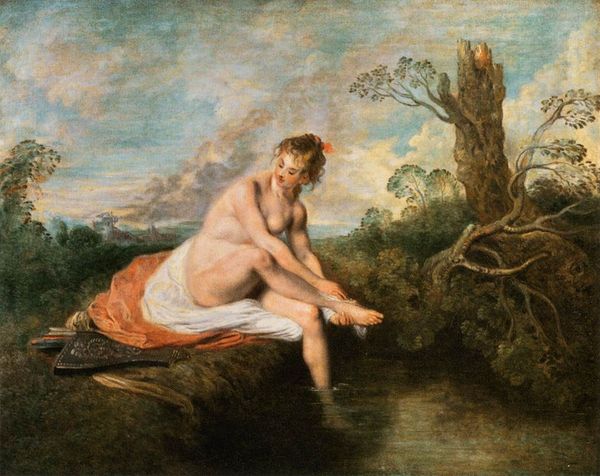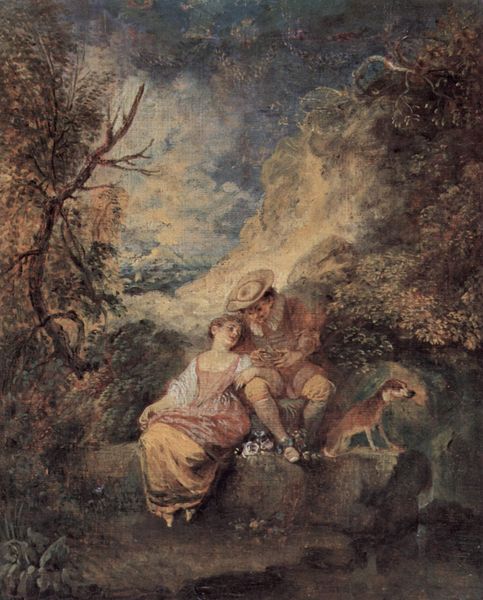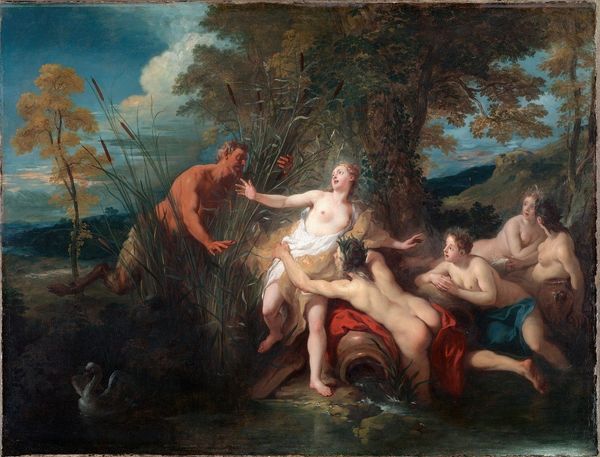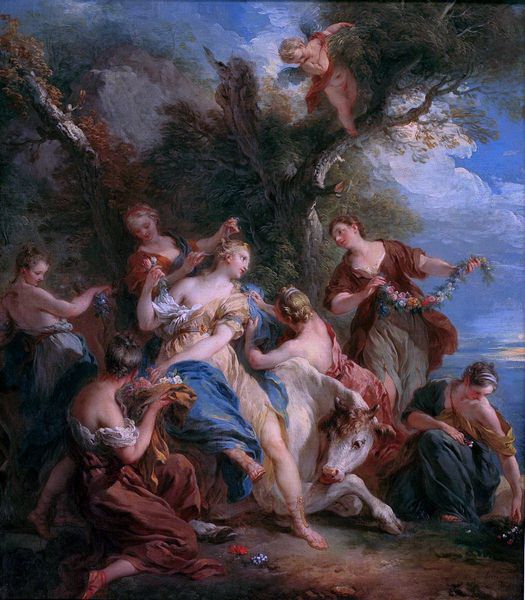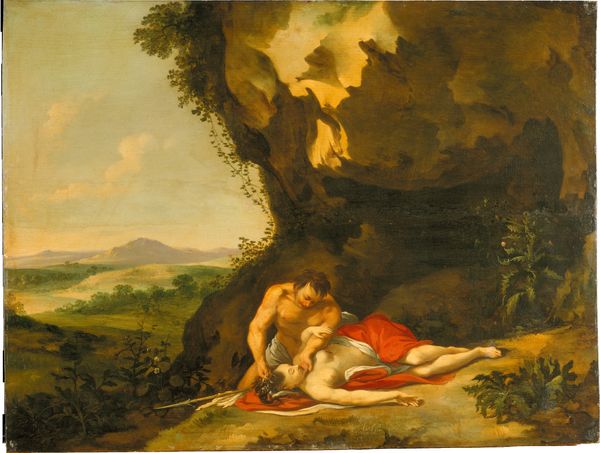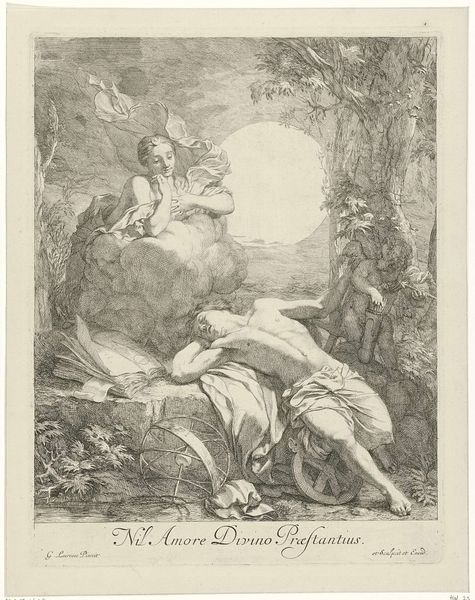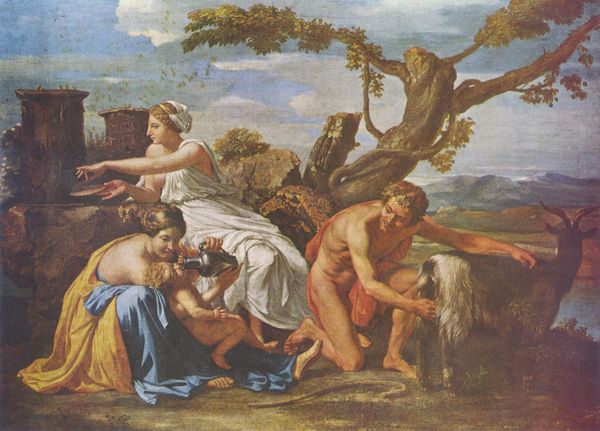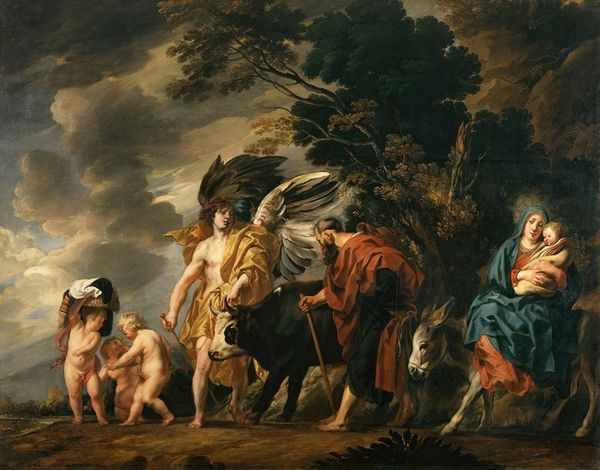
painting, oil-paint
#
portrait
#
allegory
#
baroque
#
painting
#
oil-paint
#
landscape
#
figuration
#
oil painting
#
romanticism
#
mythology
#
history-painting
#
nude
Copyright: Public domain
Editor: So here we have François Lemoyne's *Narziss*, an oil painting depicting the mythological figure. The hazy, dreamlike quality and soft color palette give it an almost melancholic feel. I'm curious, looking at it through a historical lens, what catches your eye about this piece? Curator: Well, it's fascinating to consider how Lemoyne’s *Narziss* participates in and perhaps critiques the Baroque fascination with classical narratives. It's less about grand pronouncements of power, and more about internalized, psychological drama. Consider the role of the Rococo movement during Lemoyne's time; can you see how that cultural moment impacted how this scene is portrayed, compared to, say, a Renaissance depiction of a mythological subject? Editor: I can see that. It’s less overtly heroic, definitely more intimate. Almost as if we're intruding on a private moment of self-absorption. But, I wonder, did the salons influence that shift, since art became more of a commodity within those settings? Curator: Absolutely. Salons reshaped artistic patronage and the consumption of art. Mythological subjects provided an acceptable vehicle to depict sensual, sometimes even homoerotic, themes within an elite, educated social sphere. Lemoyne seems acutely aware of his audience’s desires. Does that affect your initial reaction at all? Editor: It does make me rethink that sense of melancholy I initially perceived. Now, there's also a current of voyeurism that I pick up. Like we are not only observing him, but complicit in his…self-obsession. Curator: Precisely. So, as we move through the exhibit, consider how the institutional context itself—the museum— shapes your viewing experience and colors the ever-shifting reception of such imagery. Editor: That's definitely something I'll be thinking about. It makes you consider your own relationship to the work and its cultural legacy. Thanks.
Comments
No comments
Be the first to comment and join the conversation on the ultimate creative platform.
